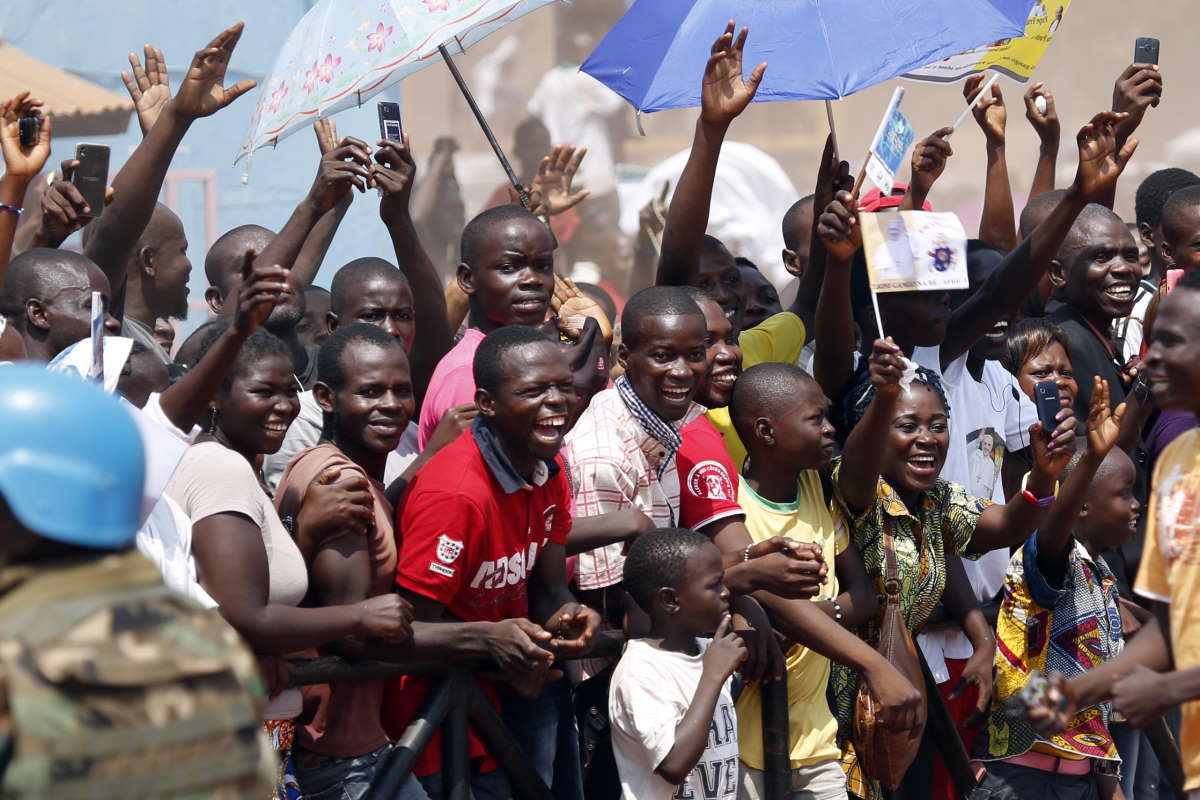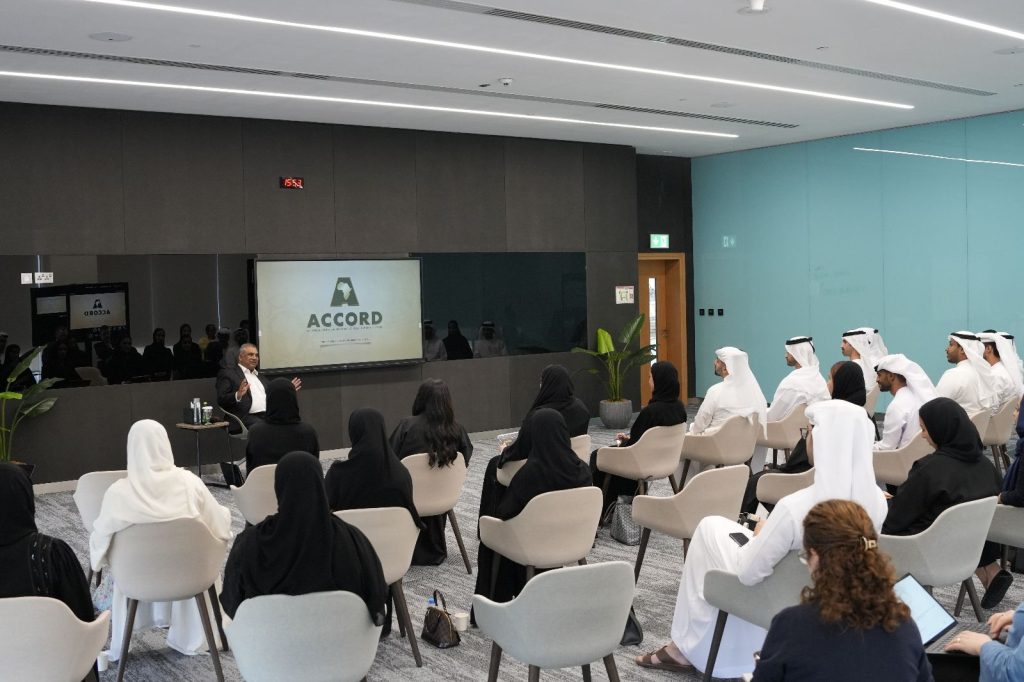ACCORD in partnership with The African Union (AU) Office of the Youth Envoy (OYE) convened a Central African regional Intergenerational Dialogue (IGD) on the 3rd of September, under the theme: Youth Silencing the Guns (STG). This was done to foster co-leadership on the theme of the year, Silencing the Guns under Agenda 2063. This theme was further unpacked into five different sub-themes and these included; a conflict free Africa; silencing poverty, hunger, youth unemployment; silencing gender-based violence; silencing corruption; and silencing climate change. The purpose of these IGDs is to solicit youth perspectives on the challenges they face, as well as their aspirations towards silencing the guns in Africa. The keynote speaker for this IGD was H.E. Professor Sarah Mbi Enow Anyang Agbor, AU Commissioner for Human Resources, Science and Technology.
The IGD identified the key roles and activities that Central African youth can play to advance the STG agenda; as well as the challenges and gaps that hinder the effective participation and contributions of the youth to silencing the guns. It further discussed ways to foster intergenerational co-leadership on silencing the guns and promotion of governance, peace, security, and development.
Some of the overarching recommendations brought up in this IGD are recommendations which are regularly made in intergenerational dialogues on the continent, and which call for youth participation and inclusion in governance, youth leadership development, strengthening the understanding of ‘silencing the guns’ challenges; and enhancing of the implementation on ‘silencing the guns’ programmes.
More explicitly, it was noted that the successes and failures in the implementation of the ‘Silencing the Guns” agenda in Central Africa, especially with respect to youth involvement, must be studied and the lessons learnt must be incorporated in to future implementation, which encompasses robust mechanisms that provide secondary-level education, vocational skill-building as well as mentoring and funding support to encourage youth to become entrepreneurs and participate in the conflict management space. To achieve the STG agenda and sustainably silence the guns, holistic Disarmament, Demobilization and Reintegration (DDR) programmes should be designed and implemented. These DDR programmes should take into account the complex connections between violent conflict and a host of factors, including but not limited to; youth and women issues; poverty, inequality and climate change; illegal financial flows; corruption and poor governance; as well as the operations and motivations of armed groups. It is essential to ensure that we employ evidence-based, measurable steps to incorporate the perspectives of youth in peace-processes and peacebuilding initiatives, such as DDR programmes, in the Central African region. The adoption of any conflict prevention and peace enforcement mechanisms must actively involve cross-border co-operation strategies between neighboring countries to be truly sustainable in a region with porous borders, in which transhumance and cross-border trade is commonplace. Further, programmes to encourage, incentivize and build the capacity of the youth to pursue nonviolent means of advocacy must be designed and implemented, if the STG agenda is ever to be effectually adopted in Central Africa.
This IGD was part of a series of six regional African IGDs convened by ACCORD in cooperation with AU OYE, Kofi Anan Foundation and Citoyen Sans Frontieres, under the STG theme, and is in line with ACCORD’s strategic objective to strengthen the capacities of youth to participate in peace and security initiatives.








